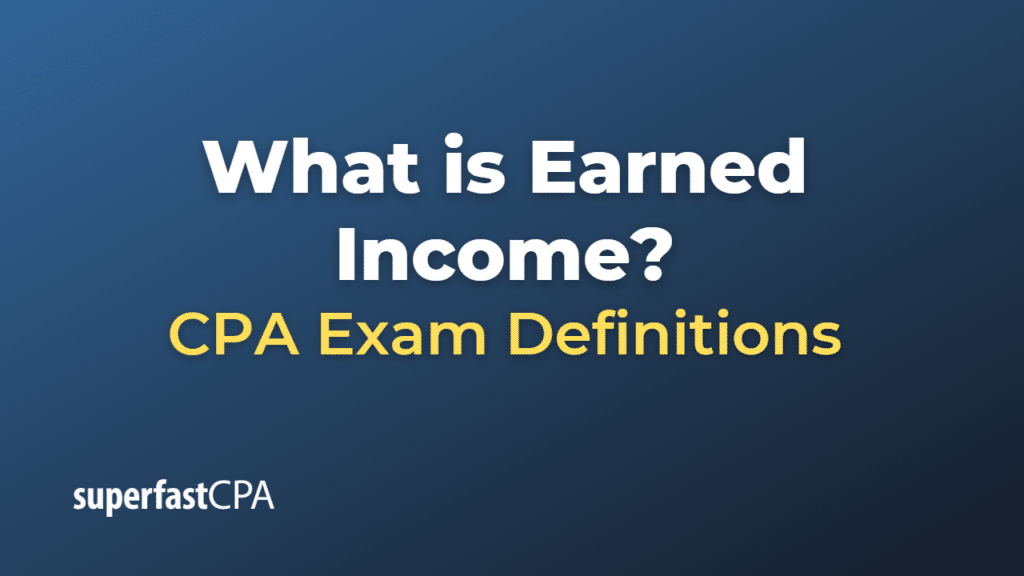Earned Income
Earned income is any income that is received from work or services performed. It includes wages, salaries, tips, bonuses, and self-employment income from a business, profession, or farm. It can also include long-term disability benefits received prior to minimum retirement age, as well as union strike benefits.
In the context of the U.S. tax system, earned income is important because it’s subject to payroll taxes (Social Security and Medicare taxes) and it is also the basis for the Earned Income Tax Credit (EITC), a refundable tax credit for low to moderate-income working individuals and couples, particularly those with children.
Please note that not all types of income are considered “earned income” for tax purposes. For example, investment income (like interest, dividends, and capital gains), retirement income, alimony, child support, and unemployment benefits are generally not classified as earned income.
The classification of income affects how it is taxed and what tax benefits you may be eligible for, so it’s crucial to understand what constitutes earned income.
Example of Earned Income
Let’s say we have an individual named Sarah. Sarah works as a software engineer for a tech company and also does some freelance web development on the side.
- Salary from her job: Sarah earns $85,000 per year as a software engineer. This is her salary, and it is considered earned income because it’s money she received in exchange for her work at the tech company.
- Tips: Occasionally, Sarah’s clients are exceptionally pleased with her freelance work and give her a tip in addition to her regular charges. Over the year, she receives $500 in tips. These tips are also considered earned income.
- Freelance income: In addition to her regular job, Sarah earns $15,000 per year from her freelance web development work. This is income from her own business, and it is considered earned income because it’s money she received in exchange for services she performed.
- Dividends from investments: Sarah has invested some of her earnings in stocks and receives dividends amounting to $1,000 in a year. This income, however, is not considered earned income. It is investment income, not money earned in exchange for work.
So, Sarah’s total earned income for the year would be $100,500 ($85,000 from her salary + $500 in tips + $15,000 from freelance work). Her dividend income would not be included in this total since it’s not considered earned income.













